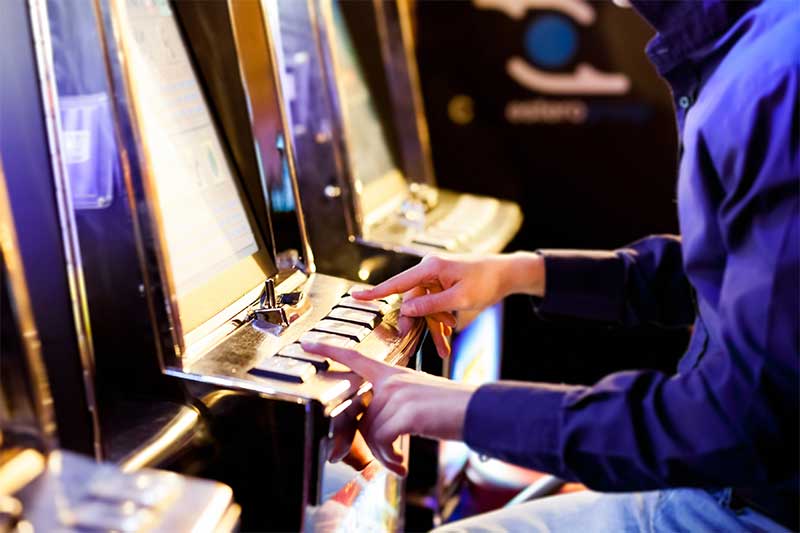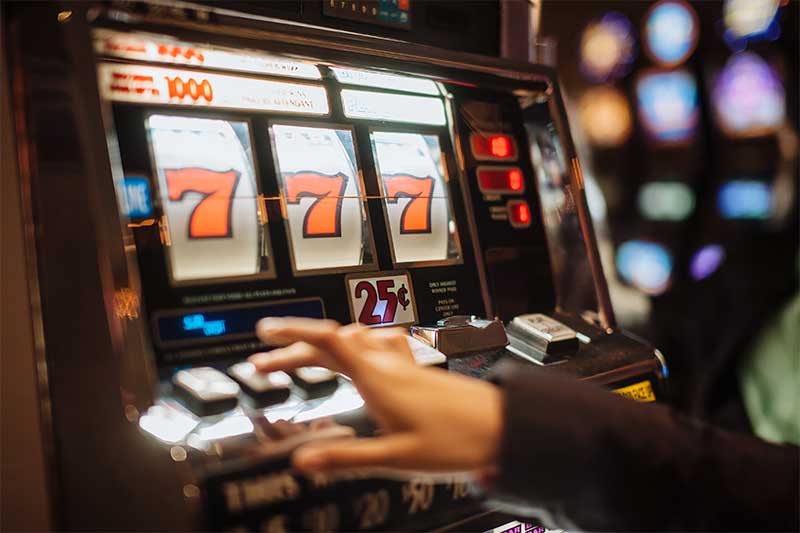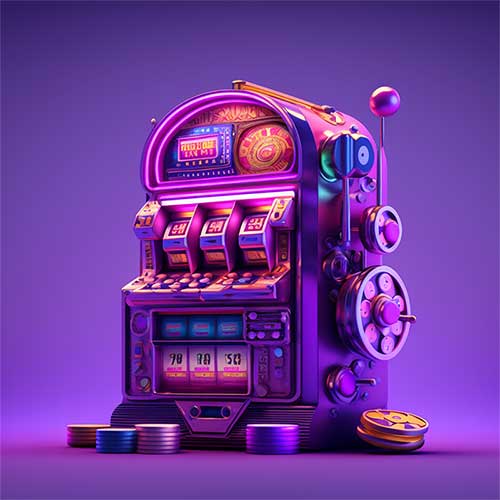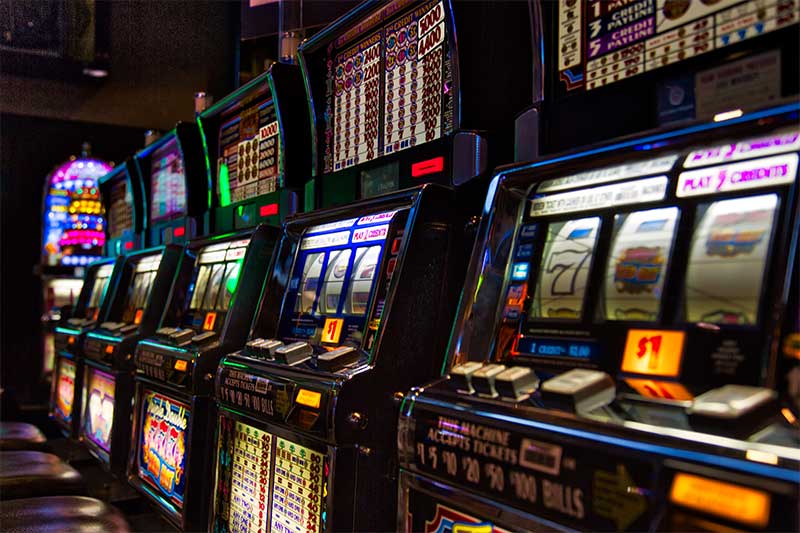Slot machines at casinos are not technically rigged. But they are designed with odds that favor the casino, meaning that almost all slot machines have a house edge. So, in some way, slot machines at casinos are “rigged” with odds that make sure the house gets a profit in the long term.
Slot machines at land-based and online casinos seem to be rigged simply because most slot players end up losing money when they play.
However, it is important to note that casino slot machines are not actually tampered with or rigged in the fashion that you may think they are. It is true that these slot machines and games are programmed to take in more money than they pay out, which makes sure that the casino makes a steady profit over the long term.

Again, developers program their slot machines so their odds are geared towards the casino. The casino advantage wired into the slot game can range from around 3% up to 30% or even more depending on the type of the machine and the casino. In fact, the house edge for a particular slot machine can be 4.5% at one casino and 6.75% in the next .
The concept of house edge is to give the casino some advantage so that they can profit from their slot machines. The inclusion of a house edge in a slot machine is completely legal and gaming authorities are aware of this fact. So, in their eyes, slot machines at legitimate casinos are not rigged despite having house edges incorporated into their designs.
Reasons Slot Machines are Not Rigged at Legit Casinos
At legit casinos, online or land-based, slot machines are difficult to rig for a number of reasons…
Strict regulations
All legit casinos are subject to an array of strict gaming controls and policies. They must adhere to these gaming controls in order to maintain their gambling licenses. Top industry regulators like the Nevada Gaming Control Board, the UK Gambling Commission (UKGC), the New Jersey Division of Gaming Enforcement (DGE), and the Malta Gaming Authority (MGA) make sure both brick-and-mortar and online casinos toe the line.
Regulators also carry out thorough inspections of slot machines and their payment systems to make sure they are not manipulated or rigged.
If they find any discrepancy, the casino is responsible for correcting it or otherwise loses their gaming license. They check the slot machine payouts, RNGs, pay table, and other parts to make sure casino patrons are getting a fair deal.
Slot machines already have an in-built edge for the casino
Legit casinos do not have to use rigged slot machines. The legal casino machines already have a house edge built into the design and paytable. For example, the popular IGT slot Cleopatra usually comes with a modest house edge of 4.98% at most online casino sites. Meanwhile, Big Six Wheel and penny slot machine games found at land-based casinos have a far higher casino advantage, at around 16% to 24%, or even higher.
The house edge means the casino is assured of profit in the long run. So, they don’t need to fix, manipulate or rig the slot machines further. It helps that online slots come with even fewer expenses.
It is difficult to work the slot machine Random Number Generators (RNGs)
RNGs are computerized systems or pieces of software backed by authenticated algorithms. These systems are designed to generate and spew random numbers. These randomized numbers will be used by the slot machines to determine results and ensure they are truly random and unpredictable.
Slot machines are tested and certified by independent third-parties
Aside from regulators like MGA and UKGC, slot machines at casinos are audited and tested for inconsistencies and bugs to ensure fair play. The most trusted names in this business include eCOGRA, TST, NMI, iTech Labs, Gaming Associates, and GLI.
Reputation and integrity of casino game developers and online casinos
Casinos and slot developers have a reputation to protect. They earn money only if slot players trust their machines and are willing to play them. If any casino game brand is rumored to be rigged, the developer will lose trust among players almost overnight. The same goes for casinos, especially online gaming sites that rely on long-standing reputations to attract new customers, retain existing players, and stay afloat.
How Rogue Casinos Rig Slot Machines
Pushing the house edge
As with all casino games, slot machines have a house edge incorporated into the paytable. It is a mathematical advantage baked into the slot machine to ensure part of the bets goes to the casino. It is how casinos make money legally from slot machines.

However, rogue casinos are usually hungry for more money. They will delve into the slot machine software and adjust the paytable to further increase their house edge. You will find that a slot game that typically has a house edge of 4% has been rigged to pay the casino at 60% or even higher.
Bypassing the RNGs
Some rogue casinos can actually manipulate the random number generators. They fill feed predetermined outcomes into the RNG box and end up fleecing players of their hard-earned money.
Rigged equipment
The equipment itself can be rigged with fake software, scripted gameplay, and other mechanisms that will punish the player.
Are casino machines rigged?
Whether or not casino machines are rigged depends on whom you ask and how you define “rigging.” On the one hand, you could say casino machines are rigged because they are designed and programmed to pay out less money than what is paid in by players. That is basically because each casino machine has a house edge, which is the casino advantage wired into the odds and paytable of the game to ensure the owner or gambling operator takes a profit over the long run.
For instance, NetEnt popular slot Starburst has a house edge of around 4%, meaning the casino will theoretically take $4 in profits for every $100 bet on the machine. In other words, players are going to win $96 back, on average, for every $100 they put in over an extended period of time.
The casino machine’s house edge is directly related to the return to player (RTP) percentage, both of which affect the player’s losses, wins, bankroll management, and jackpots.
With that being said, casino machines can, therefore, be rigged by programming or adjusting their house edges and RTPs. By doing so, the casinos can directly affect the player’s winning odds or probability, allowing them to ensure that they will make a profit from their slot machines.
On the other hand, casino machines are not and cannot be rigged because they use random number generators (RNGs). Although casino machines have built-in house edges which favor the casino, the outcomes of each spin, hand, or session are completely random thanks to random number generators. RNGs are computer algorithms or pieces of software that ensure each and every outcome of a casino slot is random and unpredictable.

To add to that, casinos usually contract independent testing labs like ECOGRA, TST, and government regulatory commissions like MGA and UKGC to audit the RNGs of their machines and games for randomness, fairness, security, and more. That ensures fair play, making sure that all games and machines are not rigged by casinos, developers, or both.
That is not to say all casino machine developers are trustworthy and don’t produce rigged products. In fact, there have been many instances where gaming commissions and players have discovered rigged machines. However, the majority of leading casino gaming developers play fair and produce games that are not rigged. These include big-name developers such as NetEnt, IGT, Microgaming, Playtech, RealTime Gaming (RTG), Scientific Games, and WMS, just to mention a few.
Are slot machines rigged or random?
Most slot machines are random and not rigged. That is especially true when it comes to slot machines developed by well-known and trusted developers like NetEnt, Microgaming, Evolution Gaming, Yggdrasil Gaming, NextGen Gaming, Playtech, Amaya, Betsoft, Elk Studios, and IGT.
Slot machines are random because they have random number generators (RNGs). These are pieces of computer software that ensure each outcome of the slot machine is random and not predictable. They generate billions of random numbers in a split of a second and these numeric sets can be used in an unpredictable order to produce the outcome of the next spin. In this way, no one, including the player, the developer, and the casino, knows or can predict where the reels will land after each spin.

The only way slot machines can be rigged is if the developer or the casino programs odds and paytable to give the house a larger edge over the player. They can do so by programming the return to player (RTP) percentage and house edge of the slot machine. The higher the house edge a slot machine has, the lower the return to player percentage.
Even if slot machines are random and have house edges, you can still boost your winning chances using the following tactics and strategies…
Choose and play slot machines with higher return to player percentages. Although they have smaller jackpots, slot machines with high RTPs pay out money more frequently, allowing you to stretch your bankroll. Typical examples include Playtech’s Ugga Bugga with an RTP of 99.07%, NetEnt’s Blood Suckers with an RTP of 98%, and Mega Joker by NetEnt (99%).
Consider the variance of the slot machines. This is important because the volatility or variance of a slot machine can affect how you will manage your bankroll.
Low volatility slot machines pay out more often, although the wins are usually small, so they are ideal for someone with a small budget. However, if you want slots with large jackpots, consider high variance options.
Use casino bonuses and free spins. The good news about slot machines is that they come with a range of bonuses and freebies. You can receive free spins for signing up with an online casino or during slot machine play. Either way, make sure they have low wagering requirements attached to them. Check if they have an expiry date or require a minimum deposit.
Play at the right casino. Not all casinos are created equal, particularly when it comes to fair play, legitimacy, house edges, and payout speeds. You will want to play slot machines at licensed and regulated casinos where games are routinely tested by third-party agencies like eCOGRA. Remember, the RTP for the same slot machine can vary from one casino to the next.
Are slot machines random or programmed?
Slot machines are both random and programmed. That is because the core software or algorithm of a slot machine is programmed to generate outcomes randomly and unpredictably. This part of the slot game is called the Random Number Generator.
The party responsible for designing, deploying, and monitoring the RNG is the game developer. It is this element of randomness that makes a slot machine a game of chance. Be that as it may, the game studio programmed everything in the slot machine, including the paytable, the gameplay, the interface, the symbols, and graphics – just to note a few.
How are casinos rigged?
Here are signs that casinos are rigged…
- The casino lacks a valid gambling license from a trusted gaming authority. These include the Malta Gaming Authority (MGA), Nevada Gaming Control Board, UK Gambling Commission (UKGC), and New Jersey Division of Gaming Enforcement (DGE).
- The games are not produced by legit developers like Microgaming, NetEnt, RTG, IGT, NetEnt, or Evolution Gaming.
- The games are not regularly tested, audited, and verified by trusted third-party testing labs like eCOGRA, TST, NMi, etc.
- Gamblers lose more frequently than implied the RTP or house edge. If the RTP of a slot is 95% and players are losing more than $95 after each gaming session, then the casino may be rigged.
- The casino uses cloned versions of legit games.
- Players often complain of non-payment, delayed payouts, unfair account closures, and other signs of a bogus casino. You can find out this info on online threads, social media, and casino comparison sites.
